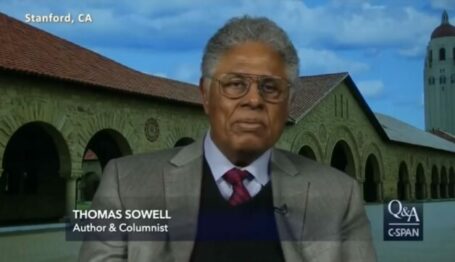Organization Trends
The “New” Left: Socialism in the Mainstream?


The “New” Left (Full Series)
The Democratic Socialists of America | Socialist Origins | The Curious Case of Kurt Stand | Socialism in the Mainstream?
Summary: The Democratic Socialists of America, an activist group, has no intention of becoming a full-fledged political party. There is no need. The socialist candidates it backs are winning elections, and it is already well-represented among sitting members of the U.S. Congress. One of its endorsed candidates recently defeated the fourth-highest-ranking member of the Democratic Party’s leadership in the U.S. House of Representatives, a development that led the media to shower the DSA with flattering publicity.
Conclusion
Ocasio-Cortez’s primary triumph has given rise to myths about the DSA that some interpret as evidence that so-called democratic socialism is on the march in America.
The DSA isn’t making Democrats more pro-socialist than they were before. It is merely forcing them to be more honest about what they stand for.
Is this “pushing” Democrats to the left? Some people say it is.
But in this writer’s view, contrary to mainstream media hype, the idea that the DSA is only now “taking over” the Democratic Party is naïve and wrongheaded: it took over the party long ago. The group’s members already largely control the party through various Democrat-related organizations. Quite a few members of the Congressional Progressive Caucus (CPC), co-founded by the DSA in 1991, are also members of the DSA, according to DiscoverTheNetworks. Even more conspicuous is the fact that the DSA used to list all the members of the CPC on its website, and frequently endorsed these members of Congress in elections. The far-left Progressive Caucus currently has 79 members in the House, about 40 percent of the Democratic Party’s members in that chamber, and one in the Senate (Sanders).
No, DSA is on the rise because the Left, including Democrat activists, grew increasingly radical over the Obama years, and now their disgust at watching President Trump dismantle some of President Obama’s key policy achievements has only added to their rage. They are in revolt against the Trump administration, attending “resistance” rallies and conducting in-your-face actions against Trump supporters. Perhaps Bernie Sanders has also helped to popularize the “democratic socialist” label, taking away some of the stigma traditionally associated with socialism in American society.
On June 27, the day after Ocasio-Cortez unseated Crowley, DSA experienced a one-day membership surge 35 times larger than normal. DSA employee Lawrence Dreyfuss said the group signed up 1,152 new members that day. In the month after President Trump was elected, DSA claims to have had approximately six times more sign-ups than in the preceding month. The group now claims to have 40,000 members nationwide, up from around 5,000 in November 2016.
DSA has made inroads at the state level over the past year. For example, in May, four female DSAers won Democrat primaries for seats in the Pennsylvania House of Representatives: Pittsburgh DSA endorsed primary winners Summer Lee and Sara Innamorato, while Philadelphia DSA endorsed primary victors Elizabeth Fiedler and Kristin Seale.
In November, DSA member and self-described socialist Lee J. Carter was elected to represent the 50th district in the Virginia House of Delegates. The Democrat standard-bearer defeated House Majority Whip Jackson Miller (R) in the general election. Other DSAers elected that month were Minneapolis City Council member Ginger Jentzen and Lakewood, Ohio, City Council member Tristan Rader.
It remains unclear whether these newly-minted lawmakers will help push America radically to the left, or if instead their radicalization of the Democratic Party will lead it to be more marginalized than it was after Barack Obama left the White House.



